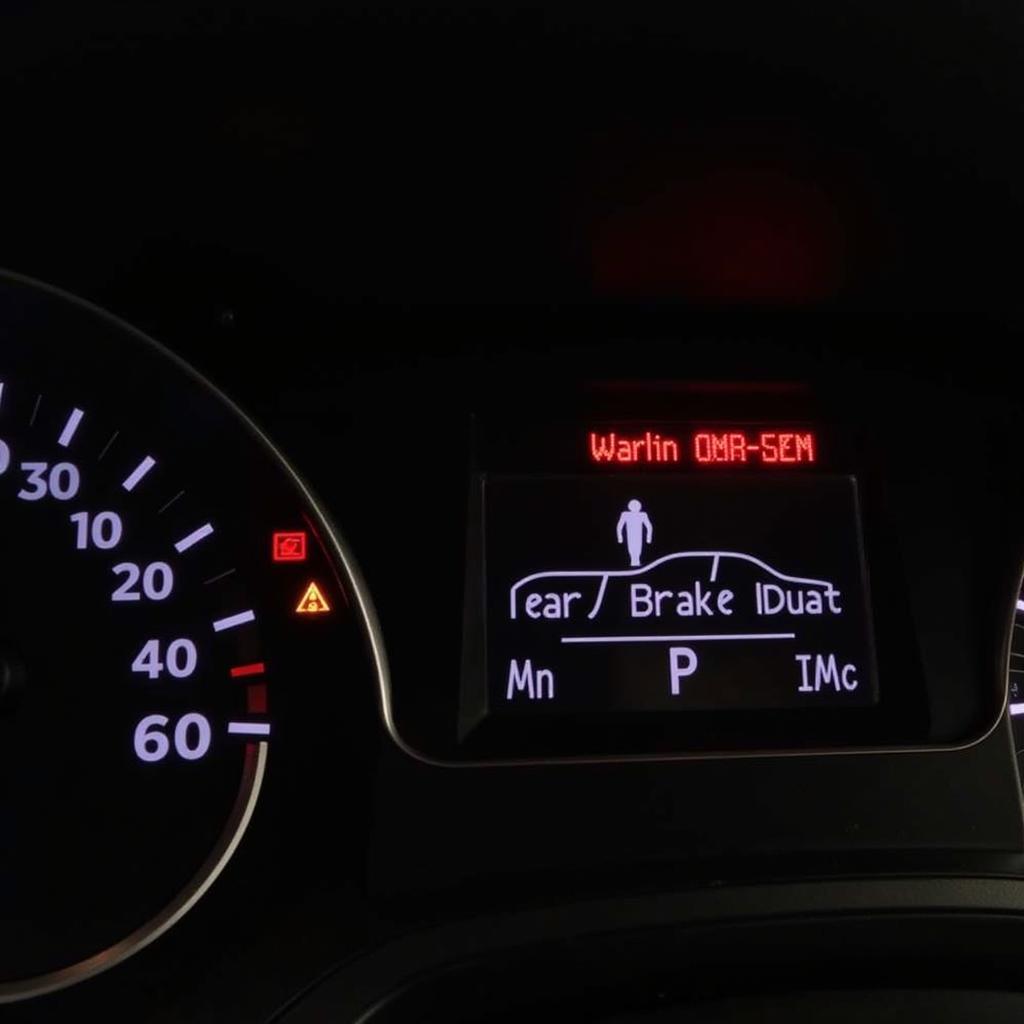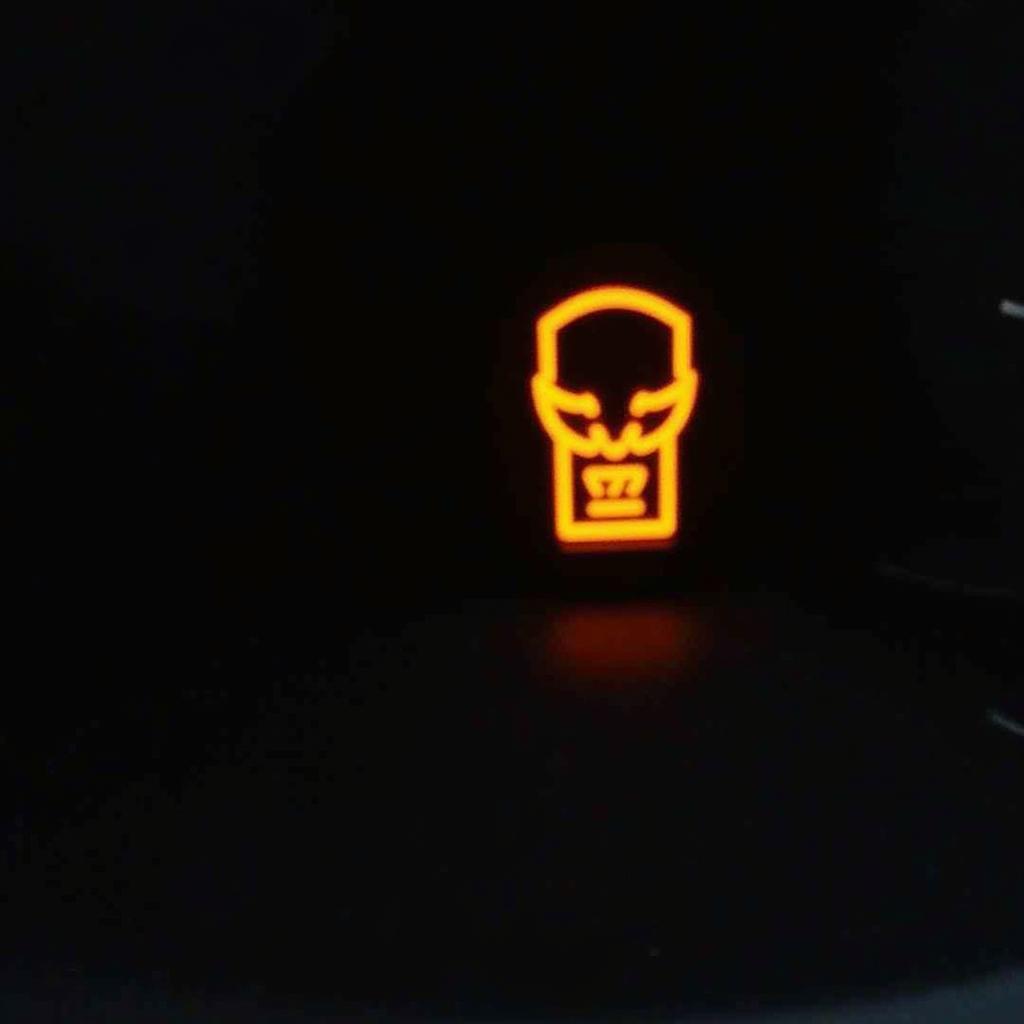If your brake warning light comes on, it signals a potential problem with your braking system that requires immediate attention. Ignoring this warning can lead to dangerous driving conditions and costly repairs. This article will guide you through understanding what the brake light means, diagnosing the issue, and finding solutions.
The brake warning light is a crucial safety feature in your vehicle. It’s designed to alert you to various issues, from low brake fluid to more serious problems like a malfunctioning ABS system. Understanding what triggers this light is the first step in addressing the problem. If the light illuminates while you are driving, it’s essential to pull over safely as soon as possible and assess the situation. Don’t delay; your safety and the safety of others on the road depend on it. You can find more information on intermittent issues at brake warning light comes on intermittently.
Understanding Your Brake Warning Light
The brake warning light can indicate several different issues. It can illuminate for simple reasons like a low brake fluid level or a disengaged parking brake. However, it can also indicate more complex issues such as worn brake pads, a faulty ABS system, or a problem with the brake master cylinder. Accurately diagnosing the cause is crucial for effective repair.
One common cause is low brake fluid. This is often due to worn brake pads. When the pads wear down, the brake calipers need more fluid to apply the same pressure to the rotors. If the fluid level drops too low, the light will come on. Don’t panic if this is the case, but address it promptly.
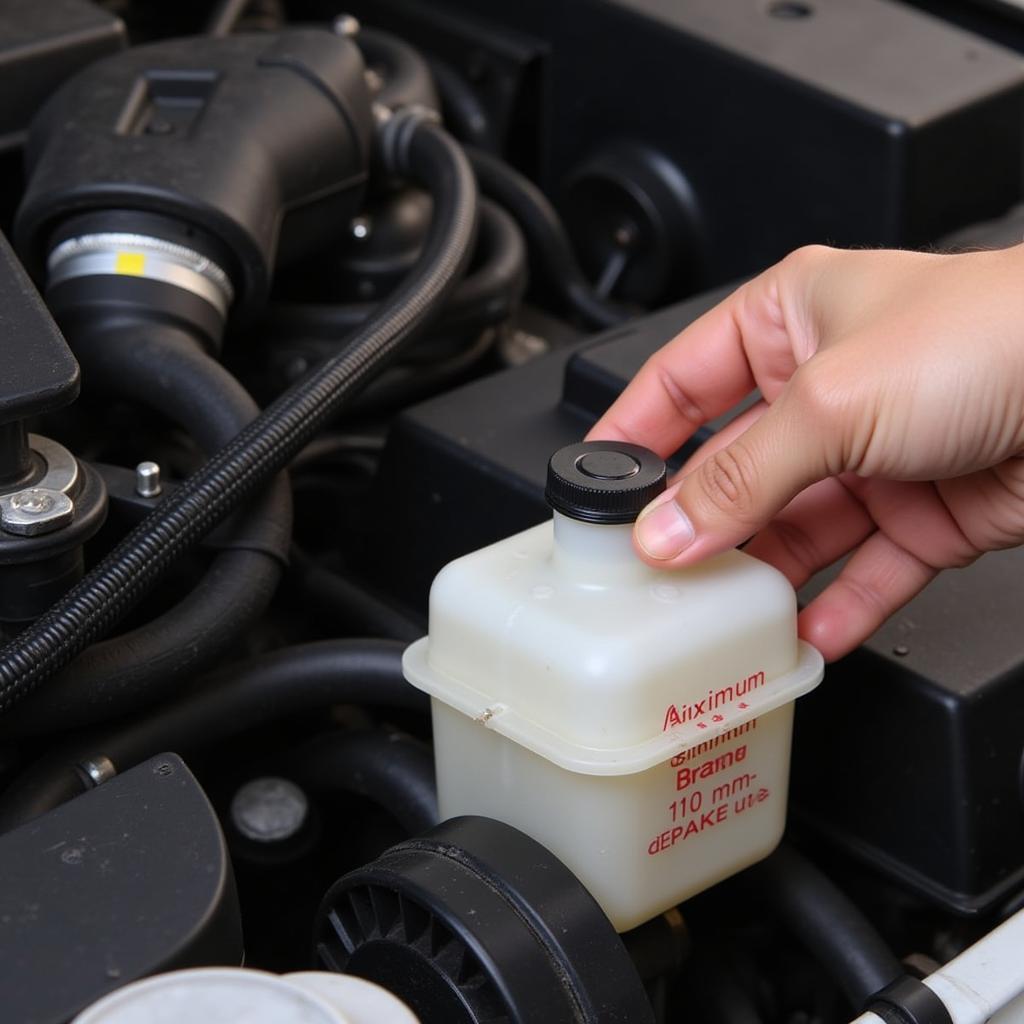 Checking Low Brake Fluid Level
Checking Low Brake Fluid Level
Another possibility is a faulty parking brake sensor. This sensor can malfunction, triggering the warning light even when the parking brake is fully disengaged. This is less serious than a brake fluid leak but still requires attention.
Diagnosing the Problem
Start by checking your parking brake. If it’s engaged, release it. If the light goes off, problem solved! If not, move to the next step: checking your brake fluid level. Locate the brake fluid reservoir under the hood and check the fluid level. If it’s low, add the recommended brake fluid type for your vehicle. Be sure to consult your owner’s manual for the correct type. If you experience problems where the brake warning light comes on then goes off, a more thorough diagnosis is needed.
If topping off the fluid solves the issue temporarily but the light returns, you likely have a leak. This requires professional attention. A mechanic can diagnose the source of the leak and perform the necessary repairs. You might find helpful information at brake warning light comes on and off.
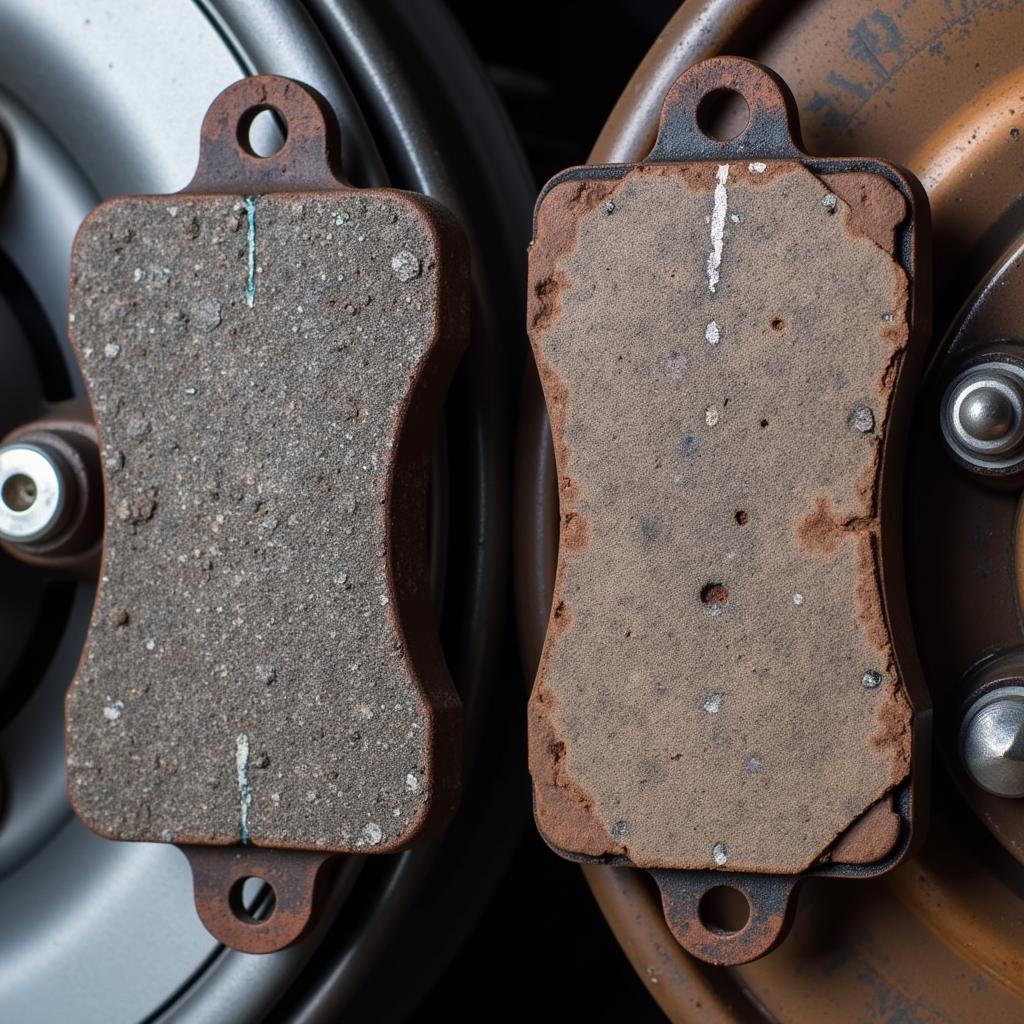 Inspecting Worn Brake Pads
Inspecting Worn Brake Pads
If your brake fluid level is fine and the parking brake isn’t the culprit, the issue could be more serious, such as worn brake pads or a problem within the ABS system. Diagnosing these issues often requires specialized diagnostic tools.
Solutions and Repairs
Simple issues like low brake fluid can be easily resolved by adding more fluid. However, problems like worn brake pads require replacement. If the ABS system is malfunctioning, it might need repair or replacement. For complex issues, seeking professional help is highly recommended.
“Ignoring a brake warning light is never a good idea,” says John Miller, a certified automotive technician with over 20 years of experience. “It’s always better to be safe than sorry. Even a seemingly minor issue can quickly escalate into a dangerous situation.”
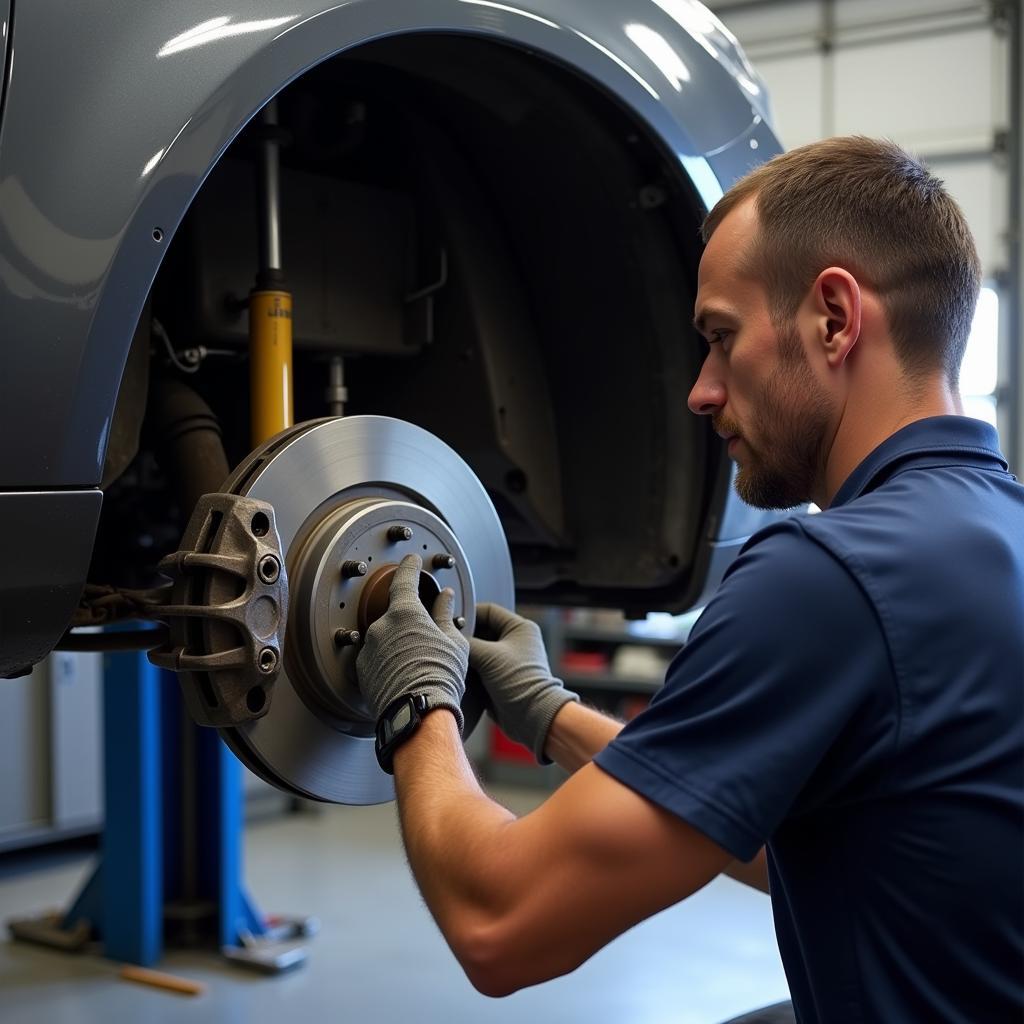 Mechanic Repairing Brake System
Mechanic Repairing Brake System
If you’re unsure about the cause of the problem or uncomfortable performing repairs yourself, take your car to a qualified mechanic. They have the expertise and equipment to diagnose and fix the problem correctly. You can find information related to hard braking issues at brake warning light comes on when braking hard. If you’re noticing that your brake pad warning light comes on and off, consider reviewing resources like brake pad warning light comes on and off.
Conclusion
When your brake warning light comes on, taking prompt action is crucial. Understanding the potential causes, performing basic checks, and seeking professional help when necessary will ensure your safety and prevent further damage to your vehicle. Don’t ignore this important warning; address it promptly to keep your brakes in top condition.

